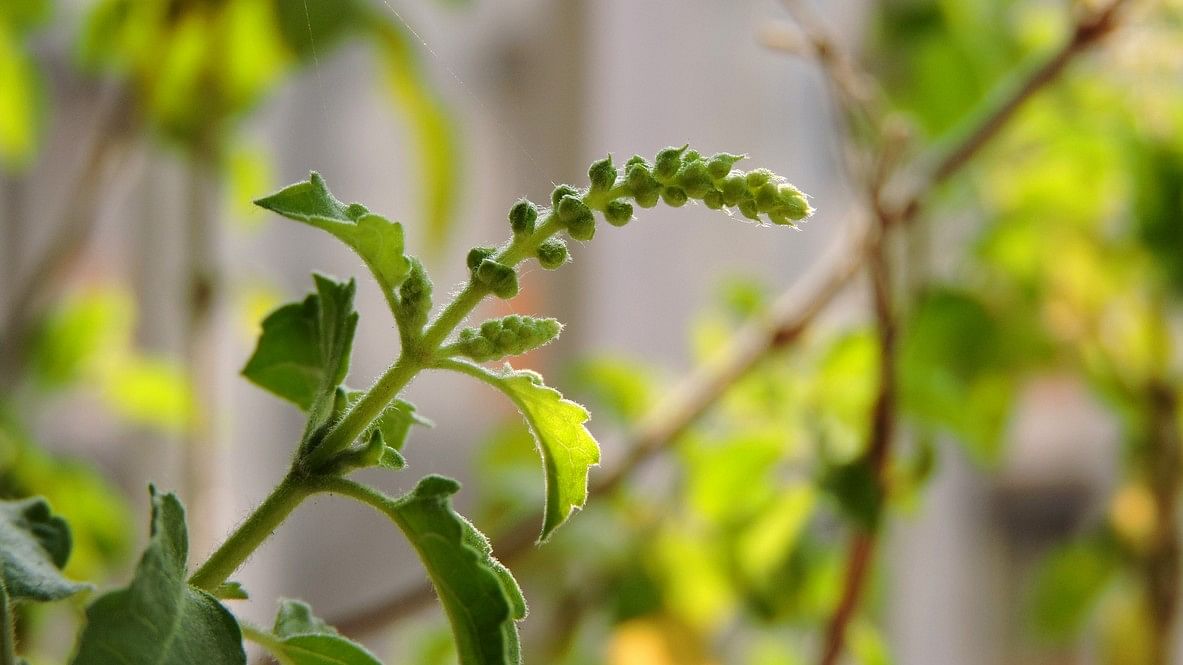
Representative image of a Tulsi plant
Credit: iStock Photo
Thiruvananthapuram: 'Tulsi' (Holy basil) plant, though a favourite offering to lord Krishna, is facing restriction at the famed Guruvayur Sree Krishna temple at Thrissur in Kerala owing to the presence of high-level of pesticide.
Many temple staff frequently complained of issues like allergy and itching owing to handling of 'Tulsi', which forced the temple authorities to advise the devotees to avoid 'Tulsi' as offering.
"Majority of the pilgrims bring 'Tulsi' from shops as offerings. Those are cultivated for commercial purposes using high levels of pesticide so as to preserve those for days. Continuous exposure to the pesticide-laced 'Tulsi' is causing issues like allergy and itching to the staff. Hence, the restriction has been put in place on 'Tulsi'," a temple staff told DH.
As a result the quantum of 'Tulsi' being brought as offering has come down. The temple is having special arrangements to get pesticide-free 'Tulsi' for pooja purposes, said the staff.
The decision has triggered a campaign by some pro-Hindu outfits putting the blame on the CPM government in Kerala.
Guruvayur Devaswom chairman V K Vijayan told DH that the restriction was put in place several months back. "It could be with vested interest that some sections are unleashing a misleading campaign over it now."
Recently, the use of Nerium oleander (popularly known as 'Arali' in Malayalam) was stopped by many temples after the death of a 24-year-old girl who consumed the flower and leaf.
Suspected presence of pesticide in cardamom had led to discarding of 6.65 lakh containers of popular 'Aravana' prasada of Sabarimala Ayyappa temple.